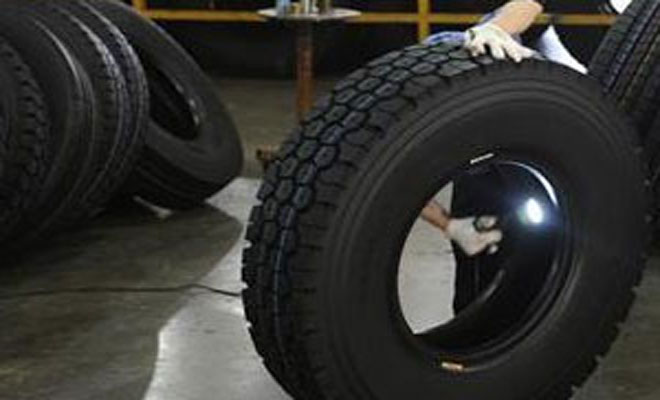<p style="text-align: justify">If you are in the market for rubber tracks for your equipment – whether you are running a small John Deere or a full-sized Caterpillar – you should get as much information as possible before you decide to purchase online.</p>
<p style="text-align: justify">Arming yourself with knowledge is about more than avoiding scammers and dealers looking to offload defective or inadequate products onto unsuspecting customers. It is also about getting the right deal on the right equipment for your specific job – every time.</p>
<p style="text-align: justify">Of course, there is far too much information out there to squeeze into a single article. However, today we will cover the major points: the do&#8217;s and don&#8217;ts, if you will, of buying rubber tracks.</p>
<p style="text-align: justify">Let&#8217;s get started!</p>
<ul style="text-align: justify">
<li><strong><em>DO </em></strong><em>ensure the rubber tracks will actually fit your equipment. </em>This seems like a no-brainer, but it&#8217;s a common mistake. With the wide variety of rubber tracks on the market – and all the brands and sometimes labyrinth-like catalogues of model numbers – it can be easy to make a mistake and end up with the wrong product. If you bought from an unscrupulous buyer, you may not get your money back, and even if the seller is willing to refund you in exchange for returning the rubber tracks, you have just lost out on valuable time and effort.<strong> </strong></li>
</ul>
<ul style="text-align: justify">
<li><strong><em>DO </em></strong><em>examine all warranties carefully.</em> If you are buying new rubber tracks, ensure that you examine the warranty on the product very carefully before coughing up the cash. Salespeople love to tout the fact that their products are covered under all kinds of protections, guarantees and warranties, but they are notoriously soft-spoken about fine print. When examining a warranty, make sure it covers the rubber tracks for at least a year, and make sure it doesn&#8217;t contain any usage clauses, such as limitations on hours of use, that might cause you to lose protection before the express terms of the warranty expire.</li>
</ul>
<ul style="text-align: justify">
<li><strong><em>DO </em></strong><em>ask a lot of technical questions. </em>The first questions you ask should be about things that only people with experience maintaining and operating rubber tracks would know. Were these rubber tracks used on a piece of equipment that spent a lot of time in the snow? Did the tracks ever experience a large material buildup inside the rails? Were they on a piece of equipment driven by a skilled, licensed operator who knew not to make quick turns or perform other maneuvers that would cause uneven wear? If the seller can&#8217;t answer these questions, that&#8217;s a sign that they may not be experienced in the industry – or may be running a scam.<strong> </strong></li>
</ul>
<ul style="text-align: justify">
<li><strong><em>DON&#8217;T </em></strong><em>purchase used rubber tracks without a full accounting of the maintenance and usage history. </em>You know that great deal you just found on used rubber tracks? It might not be a great deal if they weren&#8217;t properly used and carefully maintained over their life cycle. Since you are buying online, you often won&#8217;t be able to physically travel to the seller&#8217;s place of business in order to physically inspect them for uneven wear or damage that would render them unserviceable. Ask for maintenance records, inspection reports and anything other documents you can think of that can help you determine what kind of shape your rubber tracks will be in once they arrive.</li>
</ul>
<ul style="text-align: justify">
<li><strong><em>DON&#8217;T </em></strong><em>pay sales taxes. </em>There are far too many dealers online selling rubber tracks that are happy to pay sales taxes for you on all Internet and phone orders. Let&#8217;s say you live in Los Angeles, where the combined state, county and city sales tax rate is 9.0%. You could end up paying a lot more than you had to – all because you didn&#8217;t seek out the right dealer!</li>
</ul>
<ul style="text-align: justify">
<li><strong><em>DON&#8217;T </em></strong><em>just go to your local dealer without shopping around. </em>Too many people assume that by shopping with their local dealer – and failing to check out the market for themselves – they are getting fair, comparable prices. The truth is, many buyers pay hundreds or even thousands of dollars more for the same rubber tracks – of identical brand, model and size – that can be obtained from an established, reputable online dealer such as OnTrac. Do your homework!</li>
</ul>
<p style="text-align: justify">Again, this list just scratches the surface – but so long as you follow this general advice, you will prevent yourself from being scammed or grievously overcharged for the equipment you need to get your work done.</p>
<p style="text-align: justify">What do you think of the list? Did we leave anything off? Let us know in the comments.</p>
<p style="text-align: justify">Gabe Coeli recently enquired about rubber tracks for equipment he was renting. He found that you really have to research before choosing the right rubber tracks from the right company.</p>

The Do’s And Don’ts Of Buying Rubber Tracks
